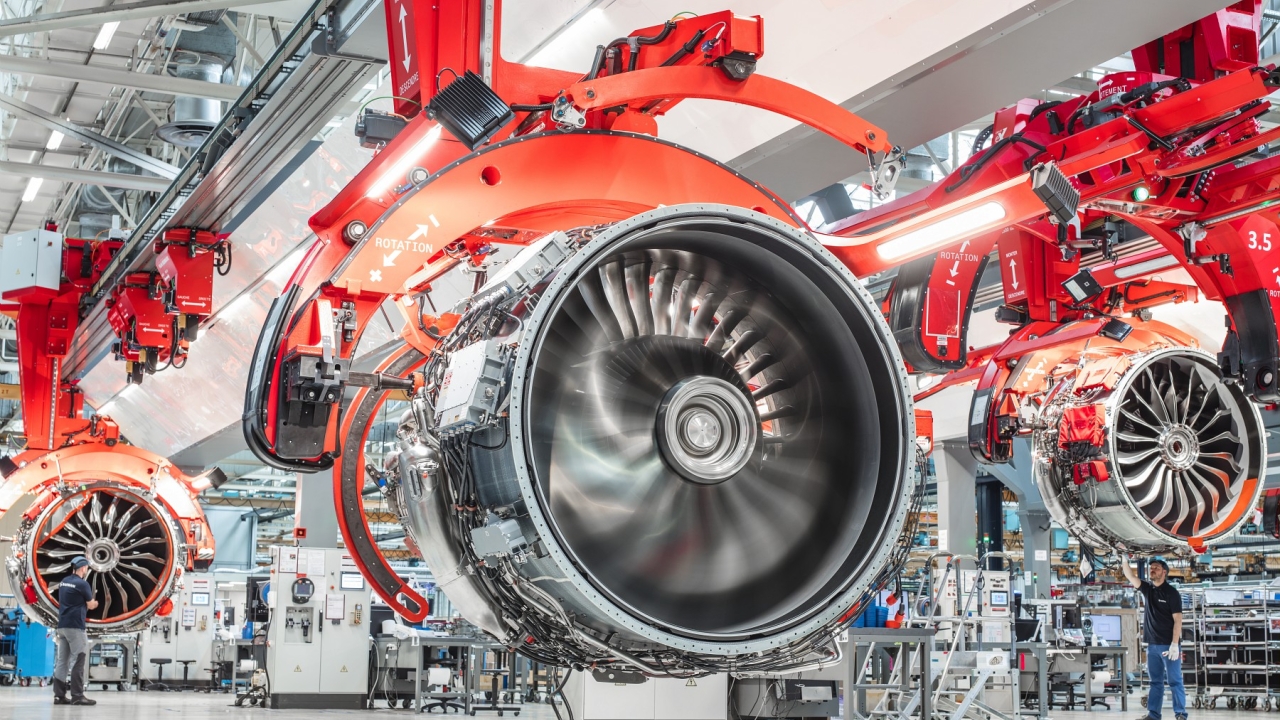The heavy toll for MRO
The deferral or cancellation of heavy maintenance on the civil aviation fleet could have serious long-term consequences for the MRO workforce. Chuck Grieve investigates.

Good news: Masked Joramco workers celebrate their first winter season contract with Ryanair. Picture: Joramco
The impact of the pandemic on MRO in the Middle East is staggering.
International management consulting firm, Oliver Wyman, in its forecast update of July 31, said the total projected MRO spend of $5.2 billion in 2020 represents a 48% loss of business.
Figures for 2021 are only marginally better. There, the global analyst projects an MRO spend of $7.4 billion, representing a loss of 34% on earlier estimates.
Industry observers suggest it will be at least two years before demand for maintenance approaches pre-pandemic levels.
Moving fleets into temporary storage and deferring heavy checks provided short-term cash flow relief, but the knock-on effects on capability may be significant.
“The industry faces a huge dilemma in terms of the labour force, particularly the highly skilled technicians employed to actually repair aircraft at the heavy checks,” said Phil Seymour, head of aviation consultancy IBA.
Demand for shop visits does not go away, noted Seymour; for the most part, it is simply deferred. “What bothers me on a long-term scale is that we’re seeing a number of engine shops and airframe overhaul facilities making people redundant where, only a few months ago, qualified people were in demand.”
IBA pegs the level of redundancies in the aftermarket workforce at “between 20-60%”, depending on the entity.
“We’re going to store up a lot of engines that will need refurbishment,” added Seymour. The quandary for the MRO sector is how to bridge the gap to keep highly trained staff employed despite the drop in demand.
His fears were echoed by the Aeronautical Repair Station Association (ARSA). A June survey carried out by the organisation showed a 27% reduction in headcount – equivalent to the cuts announced by major MRO providers, such as GE Aviation.
ARSA executive vice-president, Christian Klein, warned of a “massive loss of technical talent [that] is going to haunt aviation for years to come”.
While it appears few MROs have escaped the industry-wide collapse in demand, some are doing better than others at finding “the opportunity amidst the crisis”, as Frederic Dupont, of Etihad Engineering, put it. His company kept its engineers and technicians busy with the biggest-ever cabin refurbishment for its parent airline, involving close to 100 aircraft.
One source, looking at the overall redundancy picture in the aviation industry, suggested the level of lay-offs throughout the MRO community was lower than among flight deck and cabin crew, a result of right-sizing exercises carried out over recent years.
That was a factor for Joramco, but the Amman-based MRO was also in a different situation: its workforce is 100% Jordanian and the company takes its social responsibilities seriously. It pledged job security to its 1,100 permanent employees, as well as extensions of three months to temporary workers whose contracts were due to expire.
Chief executive, Jeff Wilkinson, said the well-being of his workforce is a central pillar of Joramco’s strategy, and “letting any of our staff go is simply not an option”. Scheduled heavy maintenance work for airlines, including Ryanair, helped bridge any gaps.
Meanwhile in India, Air Works, a leading independent MRO, reported “a sense of cautious optimism” with both scheduled and non-scheduled tasks on the increase as the focus switched from preservation to operations.
Throughout the lockdown, Air Works managed to keep all its technicians on salary as it continued to service international customers, including those from the Middle East.
D Anand Bhaskar, the company’s managing director and chief executive, said: “Even while we await the resumption of international flight operations into India, our line maintenance teams continue to support cargo and repatriation flights from various countries at more than 10 international airports.”
More fortunate than many is AMAC Aerospace, whose core business focuses on long-term projects. The MRO said its operations in Switzerland, France, and Turkey remain busy and its workforce fully employed, albeit with adjusted shift patterns and enhanced infection control in place.
A spokesman said some clients “decided to use the downtime due to the pandemic for having checks and/or refurbishment or upgrades done”.
Stay up to date
Subscribe to the free Times Aerospace newsletter and receive the latest content every week. We'll never share your email address.

